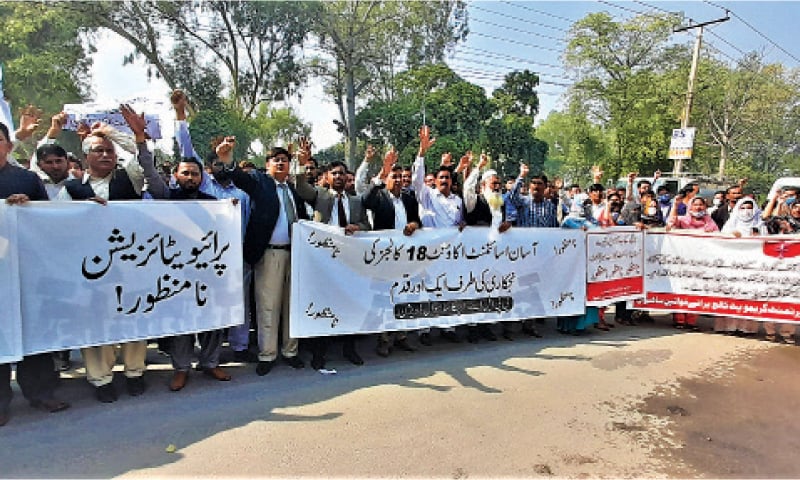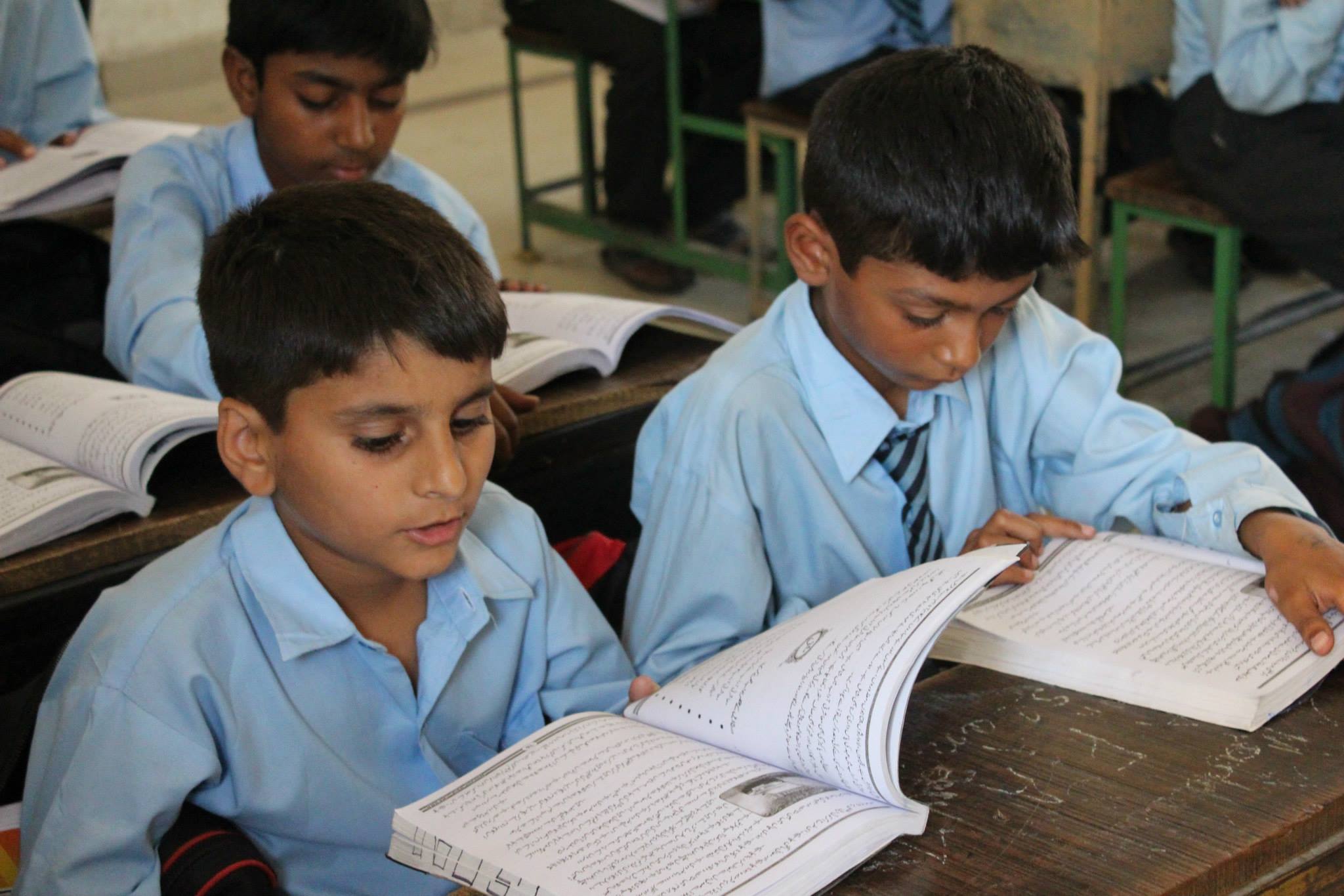Punjab education system is going through a major transformation as the government begins to privatize government colleges soon after outsourcing thousands of public schools. This new step has sparked strong reactions from teachers unions, education experts, parents and students.
Punjab education policy has entered a new phase with the move to privatize colleges which has drawn both support and criticism from the province. Understanding the government motivations its plans for the future and the implications of this decision for students, educators and the educational system becomes crucial as the debate heats up.
Expansion from Schools to Colleges
Earlier this year the Punjab government privatized thousands of public schools by handing them over to private organizations and NGOs under public private partnerships. Now the same model is being applied to government colleges. Punjab has around 750 government colleges and in the first phase 100 of these institutions have been selected for privatization.
This includes both commerce colleges in Rawalpindi which are already being transferred to private organizations for management and administrative control. This decision comes shortly after the successful privatization of 12,500 public schools.
Because of this rapid change the government has now shifted its focus to higher education and believes that privatizing colleges will improve management and educational standards. The privatization of government colleges is now one of the most discussed topics in the province. The entire education community is closely watching how this policy will unfold.
12,500 Schools Already Privatized in Punjab
The privatization of schools in Punjab started in early 2024 and is being carried out in several phases. During the first phase 12,500 public schools particularly those with low student enrollment or poor performance, were handed over to private organizations. The Punjab government says that this system allows schools to be run more efficiently with strict performance targets.
The government will start a new phase on November 1, 2025, outsourcing around 7,000 more schools. Many of these are primary and middle schools with fewer than 100 students. Student enrollment will remain a key factor in selecting schools for outsourcing. Under the new management, teachers and staff will be appointed according to the number of students and strict monitoring will be carried out through performance indicators.
The inclusion of topic related keywords such as Punjab education privatization, privatizing government colleges and outsourcing public schools highlights. The seriousness of the changes taking place in Punjab’s educational landscape.
Why the Government is Choosing Privatization
Punjab Education Minister Rana Sikandar Hayat has strongly defended the privatization of colleges. According to him, the current financial model of public colleges is not sustainable. The government spends nearly Rs. 300,000 per student every year in some colleges, which he believes is an inefficient use of public money.
He says that the goal of privatizing government colleges is not to end public education, but to improve quality by introducing public-private partnerships. The government plans to build modern commerce colleges equipped with advanced IT labs, high-speed internet, and up to 400 computers. These institutions will focus on technology based education and skill development.
The minister said that the purpose is to prepare students for the digital economy and modern job market, which demands advanced computer skills and practical training. He also stressed that this policy does not mean that education is becoming fully private. Instead these institutions will still follow the Punjab Curriculum and Textbook Board syllabus. The idea is to combine public oversight with private management to bring better results.
Teachers Unions Strongly Oppose the Privatization Plan
While the government is confident that outsourcing schools and privatizing government colleges will improve education quality, teachers’ associations have openly rejected this policy. Organizations like the Punjab Professors and Lecturers Association (PPLA) and Punjab Teachers Union (PTU) have called the move an attack on public education.
They are planning to start a province-wide protest against privatization. Teachers believe that this policy will lead to job insecurity, loss of benefits and increased commercialization of education. They fear that once private organizations take control, the focus will shift from education to profit.
They also say that poor students will suffer the most, as these institutions may later introduce high fees. Teachers have announced sit-ins, rallies and strikes across Punjab and warned that the government will face strong resistance if the policy is not withdrawn.
Timeline and Future Plans for Privatization
- Privatization to be completed by March 31, 2026.
- Timeline aligns with the start of the new academic year.
- Schools and colleges will still follow the Punjab syllabus.
- Private partners will manage staff, administration and budgets.
- Performance based contracts may be introduced.
- Contracts will focus on student results and enrollment.
- Aim is to ensure accountability of private management.
Public Reaction and Opinions from Education Experts
The decision to privatize colleges and outsource public schools has created mixed reactions among parents and education experts. Some parents believe that private management could bring better discipline, improved teaching quality and upgraded facilities. They say that if schools and colleges are well-managed and students get better results, then privatization can be a good decision.
On the other hand, many people fear that this policy will increase the difference between rich and poor students. Educationists like Dr. Amir Riaz argue that while privatization may fix some management issues, it can damage the idea of free and equal education for all. He suggests that the government should invest in reforms within the public system instead of handing over institutions to private organizations.
A Divisive Policy at a Critical Time
The privatization of public schools and the decision to start privatizing government colleges have divided opinions across Punjab. The government emphasizes modernization, accountability and better performance, while critics stress fairness, accessibility and job security. The next few months are expected to bring protests, discussions and negotiations between teachers and the provincial authorities.
This debate is not just about who manages schools and colleges, but about what kind of future Pakistan wants for its young generation. If the process of privatizing government colleges and outsourcing schools continues as planned. Punjab education system will go through one of the biggest changes in its history, affecting millions of students and teachers.
About ParhloPakistan
Parhlo Pakistan is a growing digital platform dedicated to delivering authentic news, educational updates and inspiring local stories. From the latest developments in education policy to student resources and examination guidance. Parhlo Pakistan ensures that readers receive well researched and reliable information.
By giving them insightful information and assisting them in staying up to date on significant developments. Information like the privatization of Punjabi education and the effects of government college privatization it seeks to empower parents, teachers and students.
Conclusion
Punjab Government is at an essential moment where its choices will affect the lives of thousands of teachers and students. Opponents as well as supporters of the privatization of government universities and outsourcing of public schools are still debating this policy. Teachers and education experts worry that it could restrict access to affordable education and lead to inequality. While the government views it as a step towards modernization and efficient management.
It is crucial that the government hears everyone opinions as this journey progresses particularly those of the directly impacted teachers and students. Any policy pertaining to schools and colleges must uphold the fundamental idea that education is a right not a privilege. The strength of Punjab’s educational foundation for upcoming generations will depend on the course it takes today.




